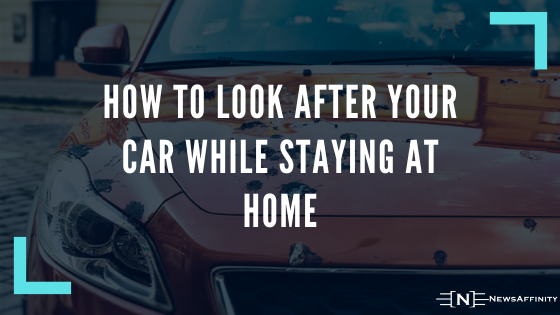The Coronavirus pandemic has meant that most people will be spending the majority of their summer holidays at home, which means less use of your favorite motor vehicle. Even if you’re not taking your car out as much as you would have done generally over summer, cars are not made for standing around for an extended period unused, so it is important to still look after your vehicle while you’re staying at home.
Portable Garage
Keeping your car standing in the heat can cause irreversible damage. A portable garage can protect your car from any harsh weather – including scorching temperatures – and can be used to hold any type of vehicle from cars, trucks, RV’s, campers, and more. If you do get some use out of your vehicle and want to go camping over summer, these portable canopies can also be taken with you to protect your vehicle. When your shelter’s polyethylene cover experiences a rip or wear and tear, make sure to invest in car replacement covers to ensure that your vehicle is sufficiently protected.
Although your car might not be getting as much use as usual this summer, it is essential to continue your regular maintenance on it, and make sure that it is clear of any damages. This way, it will be ready to be used again when you need it once more.
Tires
One of the most critical assets in your car is the tires. After a long period of standing, tires will go flat. For the best results, do a visual inspection – as well as check their pressure – roughly every two weeks. Following this, look out for anything stuck in the tires, like pieces of glass or nails.
Batteries
The majority of modern cars with a healthy battery will begin to lose their charge in around two weeks. If in doubt, starting your car back up once every week will reassure you that your battery remains healthy. If you can, connect your car’s battery to a mains-powered battery maintainer to re-charge and keep the engine in good condition. While your vehicle is running, never leave it unattended and make sure to keep an eye on any warning lights and the engine temperature gauge.
Brakes
An extended period of standing with the parking brake on can cause the brakes on a vehicle to seize. To prevent this, release the parking brake and move the vehicle a short distance back and forth, at the same time as running the engine. It is normal for your brakes to make a noise if you haven’t used your car in a while, just make sure to test them as soon as possible if you begin driving again after a long period of keeping your car in your garage. Additionally, you can inspect your brakes by removing the wheels. If you have the knowledge and experience, you can check the edges of your brake pads for any signs of discoloration or crumbling, as well as examine the rotors and drums for cracking.

















Comments